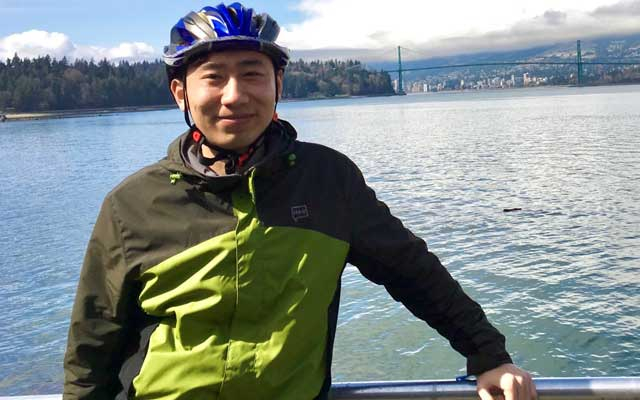Look, no hands! Controlling a device with just brain activity
Dr. Dalin Zhang completed his PhD in the area of Brain-Computer Interface systems.
Dr. Dalin Zhang completed his PhD in the area of Brain-Computer Interface systems.

Dr. Dalin Zhang was working as a design engineer at a communications company. While he was there, he worked with software engineers and got a taste of computer science which intrigued him enough to set him off on a new path.
Fast forward to 2020 and Dr. Zhang has completed his PhD in the field of Brain-Computer Interface systems.
PhD degree and year: Doctor of Philosophy in Computer Science and Engineering, 2020
Current role and organisation: Assistant Professor, Aalborg University, Denmark
Before joining UNSW, I got my degree in electronics engineering and was a digital IC design engineer at a communications company. There I worked alongside software engineers and was intrigued by computing algorithms. As a result of this I decided to pursue a PhD degree and chose computer science as my major.
My PhD research project was about developing algorithms and their applications for Brain-Computer Interface (BCI) systems. A BCI system enables its users to interact with computers by means of brain-activity only. This is a fundamental approach to promoting post-stroke motor rehabilitation and realising cognitive prosthetics for patients with a disability. During my PhD, I developed a suite of advanced new machine learning algorithms and techniques to better extract and interpret brain activity patterns and thus enhance the working efficiency and robustness of Brain Computer Interface systems in practical use.
My supervisor was Dr. Lina Yao, who is the best supervisor I could have ever imagined. She introduced me to this exciting field of technology and always motivated, encouraged and continuously supported me throughout my PhD studies. I was extremely lucky to have such a supervisor.
I will be joining Aalborg University, Denmark as an assistant professor later this year. This is a tenure-track position, and I will be responsible for both teaching and academic research. Even though I haven’t officially commenced, I have started to prepare teaching materials and investigate what I will be researching.
I am very much looking forward to being an independent researcher and also mentoring students.
A memory that sticks out was my first PhD paper, I guess because it was my first one and I learnt a lot about research in the process of preparing it. I finished up working on the paper about a month before the submission deadline and at the time was really pleased with how it had turned out and the fact that it had led to another research topic. However, when I reviewed it two weeks later, I realised that it needed more work and the experiments could be improved. So, I carried out more experiments and almost rewrote the paper within two weeks. The paper was accepted and it reminded me to always strive for improvement in your work.
What advice would you give to other students who are just starting their degree in Computer Science?
Practice is the best way to learn! A lot of computer science courses are tricky, and you might struggle with math equations or concepts. What worked for me was finding a related project or a specific problem to practice on. With practice the concepts become clearer and it is easier to identify where you are getting stuck. Once you’ve identified this, seek out the advice or help of teaching staff or peers.
Most projects require engineers to work in a team and with colleagues who aren’t familiar with their field. Being able to communicate well, and share requirements and results in an effective way is key to the team being successful.